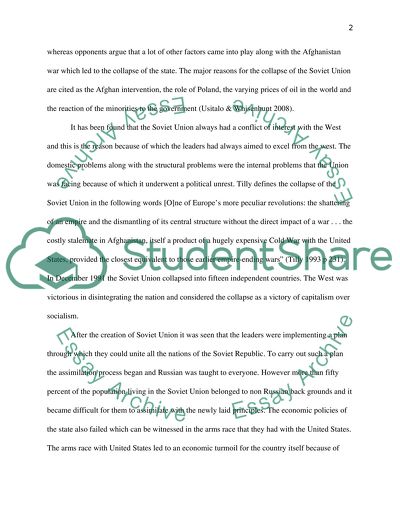Cite this document
(“Why did the Soviet Union collapse Essay Example | Topics and Well Written Essays - 1250 words”, n.d.)
Retrieved from https://studentshare.org/history/1414840-why-did-the-soviet-union-collapse
Retrieved from https://studentshare.org/history/1414840-why-did-the-soviet-union-collapse
(Why Did the Soviet Union Collapse Essay Example | Topics and Well Written Essays - 1250 Words)
https://studentshare.org/history/1414840-why-did-the-soviet-union-collapse.
https://studentshare.org/history/1414840-why-did-the-soviet-union-collapse.
“Why Did the Soviet Union Collapse Essay Example | Topics and Well Written Essays - 1250 Words”, n.d. https://studentshare.org/history/1414840-why-did-the-soviet-union-collapse.


